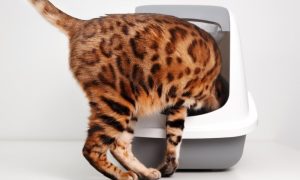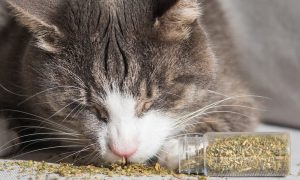Yes, it’s common to joke about cats and their tendency to be finicky with food. But, it’s actually a pretty serious issue when a cat refuses to eat anything at all. Although loss of appetite generally concerns all pets, it could be more dangerous for our kitties. Their refusal to eat usually indicates illness, so it’s imperative that you talk to your vet the moment you observe changes in your feline friend’s eating habits.
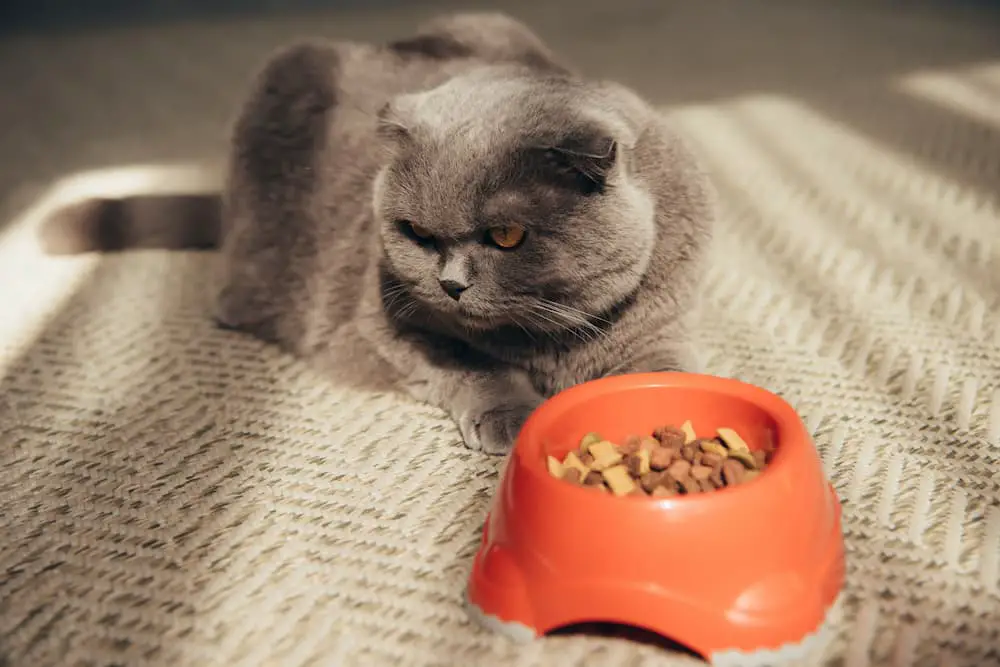
Never assume that your cat will get hungry enough that she will eventually eat. If a cat goes longer than 2 to 3 days without food, she can go into liver failure – also known as feline hepatic lipidosis – a potentially deadly disease. Cats can literally starve themselves to death.
Possible Causes of a Cat Not Eating
The first step in treatment is being able to recognize some of the common reasons why a cat just stops eating. These include respiratory infection, nausea, pain or trauma, ingestion of poison or foreign objects, age-related problems, change in their diet or food location, and/or household changes like moving to a new place, addition of a new pet, or departure of a family member.
Whether your kitty is anxious, sick, or just simply picky, keep in mind that a complete refusal to eat food can have devastating results. It’s imperative that if you’re unable to get your cat to eat, you must take them to the veterinarian.
If illness is the reason why your kitty will not eat, consult your vet immediately and work with a regimen that will best help your ailing feline friend. This may include a change in the kind or consistency of the food that she normally eats. For example, a cat with pain from dental disease may need a switch to softer food while waiting for a tooth cleaning or extraction. In some cases, the veterinarian might have to prescribe drugs to stimulate your cat’s appetite, recommend putting them on a liquid diet, or advise the use of a feeding tube instead to make sure that your ill cat gets the nutrition they require.
How to Get Your Cat to Eat
Now, if you have confirmed with your vet that the illness is not the culprit, try the following tips to get your cat to eat:
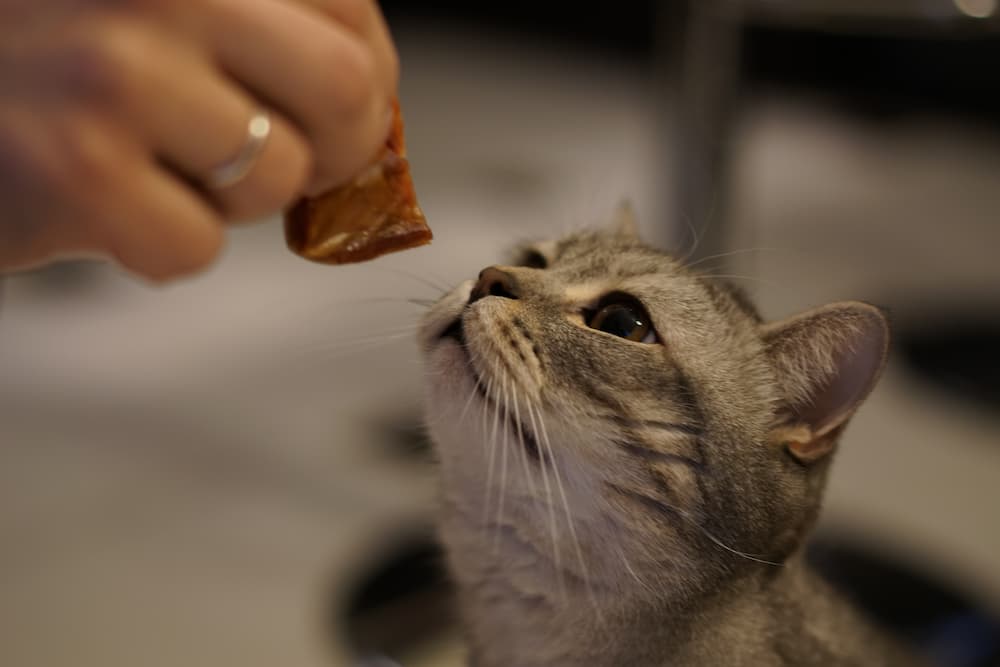
- Heat the food by adding warm water to tempt your cat with the aroma of the appetizing cat food. If your cat still refuses to eat, make sure that you take the food away and that you give them a fresh, delicious meal later. Don’t leave it to harden and become stale; otherwise, your kitty will learn to avoid it next time.
- Ensure a safe, quiet, and comfortable location for your cat’s food dish.
- Consider whisker stress as the cause. Choose wide, shallow food bowls and keep them clean at all times.
- Take her age into account. Try to adjust and consider providing your elderly cat with soft food if she has dental problems or elevating the kitty’s food bowl if you know that she’s arthritic.
- Give your cat attention and offer food by hand. Add something tasty to further entice her. You can sprinkle it with mouth-watering bonito flakes or irresistible liver powder, squeeze treats like Churu, or even parmesan cheese.
- If you’re committed to a particular cat food brand (due to ethical or medical reasons), see if it comes in some other flavors. Experiment and try other brands as well which offer the same health benefits. You’ll see how kitty might find the flavor change very refreshing.
- Offer your cat delicious foods she cannot turn down — baked chicken or turkey as long as they’re not seasoned are safe options. Baby food, as long as it’s meat only and contains no onion or garlic, is a great treat to help ignite your cat’s appetite for a couple of days. Once your cat is eating again, you may transition them back to cat food.
- Often, cats with upper respiratory infections stop eating because they are unable to smell their food. Try offering canned cat food – the stinkier, the better. You can warm it up slightly to bring out the smell even more.
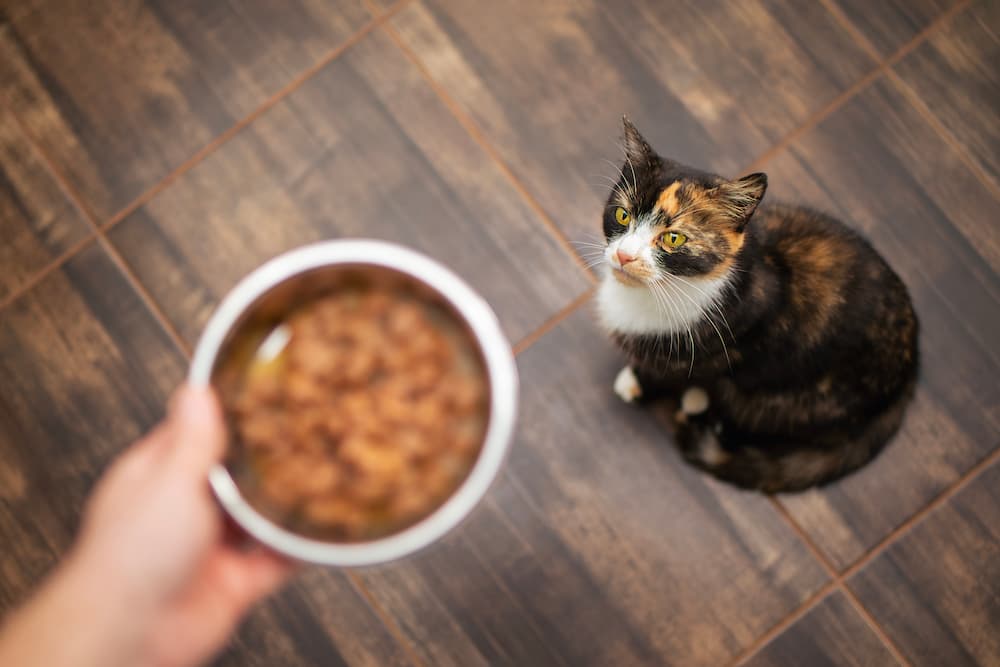
Final Thoughts About Cats Not Eating
As cat parents, we want our feline family to always be happy and healthy. It can be concerning when they refuse to eat, but it’s important not to panic. Try out some of the tips mentioned above, such as changing their food or adding variety, and you may be able to entice your cat to eat again. However, if your cat continues to refuse food for more than a day or two, it’s best to seek advice from your veterinarian. Remember, a loss of appetite can indicate an underlying health issue that requires immediate attention. Let’s do everything we can to ensure our beloved cats are eating well!
The Catington Post is reader-supported. That means, if you make a purchase through links on our site, we may earn an affiliate commission. All images and names which are not the property of The Catington Post are the property of their respective owners.






